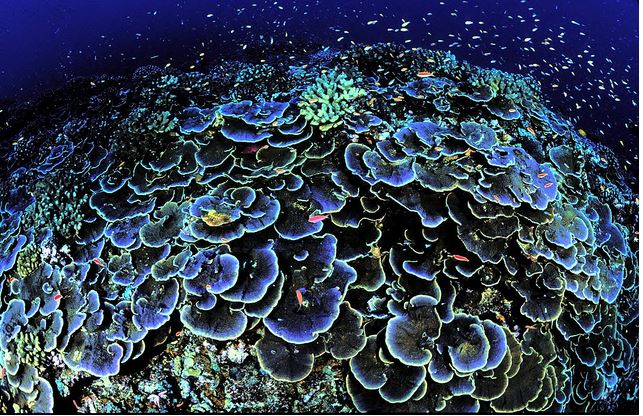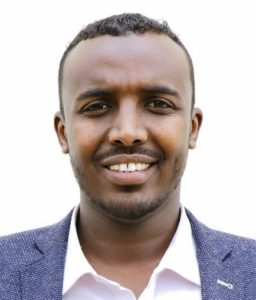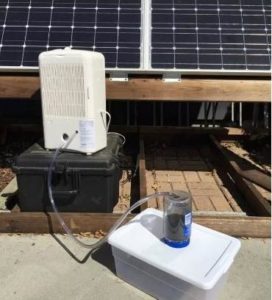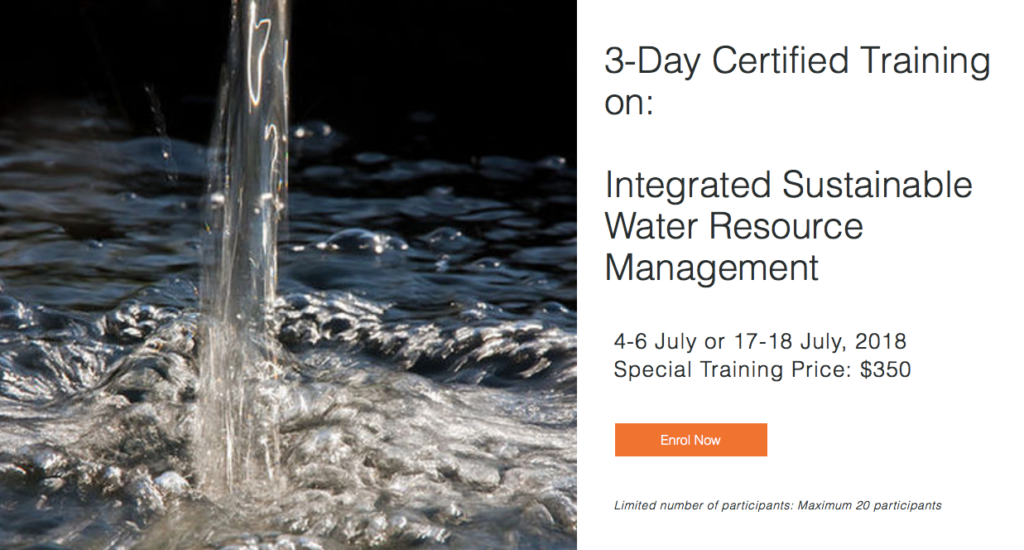Vote for 2018 Young Champions of the Earth

A healthy reef in Jarvis Island National Wildlife Refuge, located 1,305 nautical miles south of Honolulu. (Photo: U.S. Fish and Wildlife Service) Public domain.
By Sunny Lewis
NAIROBI, Kenya, June 21, 2018 (Maximpact.com News) – Mohamed Abdirahman, 29, of Hargeisa, Somaliland established his own tree-planting program in 2015, the same year he graduated from the University of Hargeisa with a degree in Environmental Science. He is now one of 35 finalists worldwide in the contest for the 2018 Young Champions of the Earth prize.
“My big idea is to plant trees in cities while educating youth in schools and universities about the importance of forests and mobilizing them to participate in a nationwide reforestation program,” said Abdirahman. “This will build on work that I have already undertaken to promote tree-planting at weddings, graduation ceremonies, and schools. My goal is to bring back the forests of Somaliland and foster a national culture in which caring for the environment is recognized by everyone as their moral responsibility.”
Now in its second year, Young Champions of the Earth is a global competition that seeks out entrepreneurs and innovators with big ideas to secure a sustainable future. All of the finalists’ ideas address urgent environmental issues in innovative ways.
Their proposals range from land-based coral farms to replenish the dying coral reefs around the world and a plan for breeding fatty insects as a source of biofuel, to be used as an alternative for palm oil.
There are educational initiatives involving board games, music and digital platforms to raise environmental awareness; tackling plastic pollution through recycling and upcycling into bricks and urinals, and an integrated system of wildfire detectors that could prevent destructive fires.

Mohamed Abdirahman, 29, of Somaliland is one of five finalists from Africa in the 2018 Young Champions of the Earth competition. (Photo courtesy UNEP) Posted for media use
“The Young Champions of the Earth prize is highlighting exactly how creative, dedicated and driven young people can be when it comes to the future of our environment,” said UN Environment chief Erik Solheim. “These regional finalists are an inspiration to all of us, that hard work and a positive outlook are a powerful way to reach a goal, even one as ambitious as a sustainable world for all.”
Seven final winners will each receive the prestigious prize along with US$15,000 in seed funding, mentorship from industry leaders and access to a wide network of influencers to bring their ideas into fruition.
Members of the public can view and rate the 35 proposals here. The non-binding public vote will close at 4 pm Eastern Africa Time, three hours ahead of Coordinated Universal Time (UTC), on Monday, June 25.
The public online vote will inform a global jury that will select the winning 2018 Young Champions in September.
Here are some of the big ideas that have attracted attention in the online voting.
Europe
Maria Sousa, 25, a systems engineer from Portugal, is a finalist in the Young Champions contest. Her big idea centers on early fire detection through remote sensing using artificial intelligence.
A research fellow at the Center of Intelligent Systems at IDMEC-Institute of Mechanical Engineering in Lisbon, Sousa’s big idea is to have a dynamic network of sensors that can relay real-time data when there are forecasts of increased fire risk. Her system relies on static sensors as well as mobile aerial platforms such as drones and high-altitude balloons for extensive area coverage.
Asia & the Pacific
Natalie Kyriacou, 30, of Australia, the founder and CEO of the nonprofit My Green World, the Creator of World of the Wild mobile game app, and the Australian Director of Sri Lankan-based NGO, Dogstar Foundation, is a sitting member of the International Union for the Conservation of Nature, a World Economic Forum Global Shaper and a Forbes 30 Under 30 honoree. She is also a finalist in the 2018 Young Champions of the Earth competition.
Kyriacou’s big idea is Kids’ Corner, a digital classroom inspiring children and educators to participate in wildlife and environmental conservation and sciences through workshop-based environmental programs, animation videos, fact sheets, infographics, reading materials, teachers’ notes, games and home activities. “Kids’ Corner breaks down complex issues into easy, fun, positive and actionable concepts that can be used in any setting,” she says. Kids’ Corner will be available online and offline, and in homes, schools and hospitals.
North America

This Majik Water proof of concept prototype “hacks” existing technology to generate 10 liters of water per day from the air using solar technology. (Photo courtesy Majik Water) Posted for media use
Anastasia Kaschenko, 23, of Canada, has already founded three sustainability ventures, raising more than $60,000 to seed those projects. She was on a finalist team competing in the $20 million Carbon XPRIZE. Kaschenko was recently selected as a Singularity University Fellow, at NASA Ames Research Center in MountainView, California. There, she launched Majik Water, which harvests clean drinking water from air. Majik Water received the MIT Water Innovation Award and was recognized by “Financial Times” as one of 50 Ideas to Change the World.
Majik Water uses novel technology combined with locally-adapted design to harvest clean drinking water from the air and deliver it to people and communities in the world’s driest places, starting in Kenya.
Majik technology uses solar thermal energy and abundantly available, non-toxic, sponge-like desiccant materials, to generate 10 liters of water per day from the air, making it possible to get water in a low cost, energy efficient way.
Latin America and the Caribbean
Gator Halpern, 27, of the Bahamas, spent time as a teenager living with indigenous Mayan communities, where he learned that he wanted to devote his life “to protecting the environment from the forces threatening their livelihoods.”
Halpern calls his big idea Coral Vita, the creation of land-based coral farms to restore and sustain the world’s coral reefs.
“Over 30 percent of global coral reefs are dead, and more than 75 percent are projected to die by 2050. This is an ecological tragedy and a serious socio-economic problem, as reefs sustain one-third of all marine life, support some one billion people globally, and generate US$30 billion annually through tourism, fisheries, and coastal protection,” says Halpern.
Coral Vita is creating a global network of innovative land-based coral farms, using breakthrough methods developed at the Mote Marine Lab and the Hawaii Institute of Marine Biology to grow corals up to 50 times faster while strengthening their resiliency to climate change. The land-based farms are scalable, potentially growing millions of corals from a single site. Coral Vita’s business model can support restoration at unprecedented scales. By taking a community-based approach, locals are engaged to promote long-term reef stewardship.
West Asia
Karim Shrayedeh, 29, of Jordan, is the current Project Proposals Writer of The Jordanian Hashemite Fund for Human Development, the largest and oldest nonprofit organization in Jordan.
Shrayedeh’s big idea is the Protection of Water Dams in Jordan that aims to protect the environment by increasing vegetation coverage in the catchment areas of two dams that supply Jordan’s capital city Amman and Al-Karak with water.
“Both the Wadi Almujab and Wadi Al-Karak dams are facing increased accumulation of sand and other sediments. This has diminished their storage capacities, threatening vital supplies of water to agriculture. Without the dam water, farmers will be forced to tap precious limited groundwater resources, an unsustainable scenario,” says Sharayedeh.
Jordanians and Syrian refugees will be employed for a total of 75,000 working days to increase vegetation coverage in the catchment areas, creating new job opportunities, enhancing social inclusion and fostering a sense of shared responsibility for the maintenance of the dams and their catchment areas.
The 35 finalists were selected from a pool of 760 submitted project ideas across a wide spectrum of impact areas.
The review of applications was conducted by a global team of 20 UN Environment staff in conjunction with representatives and affiliates of CoalitionWILD.
The Young Champions competition is supported by Covestro, one of the world’s largest polymer companies. Covestro CEO Dr. Markus Steilemann said, “As one of the world’s leading contributors of materials for sustainable development, we’re honored to partner with UN Environment to inspire and motivate young people across the world to contribute to the UN Sustainable Development Goals.”
